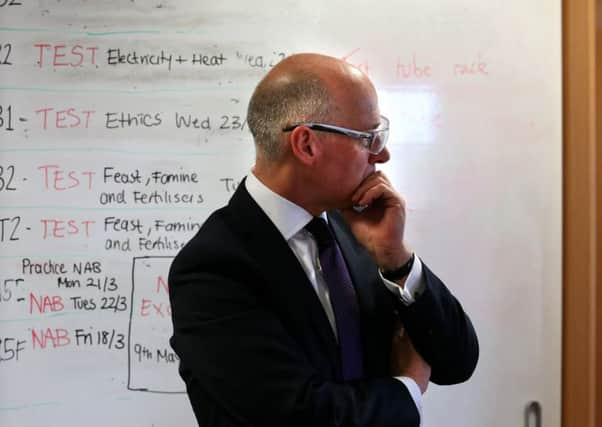John Swinney warned that education reforms could be at risk


The warning was made in letter from Holyrood’s education committee, which outlined concerns raised by those involved in Scottish education relating to his plans to empower schools and headteachers.
The Scottish Government has been consulting on a new Education Bill which also includes proposals to disband Scotland’s governing body for teaching.
Advertisement
Hide AdAdvertisement
Hide AdThe committee has heard from teachers, pupils and parents about what the proposed changes would mean for them. It has written to Mr Swinney setting out its findings, including calls for clarity around the new Headteachers’ Charter and the creation of an Education Workforce Council for Scotland.
The new charter would see heads handed more power over the curriculum, recruitment and budgets. However, trade unions have already criticised the move, citing increased workload pressures for school leaders. In its letter, the committee noted: “The committee heard that the capacity of headteachers and their schools to absorb additional responsibilities will, of course, not be uniform across the country and there is a potential risk to effective implementation if the correct support is not provided and the capacity of a school, or school education as a whole, to implement reforms is not assessed.”
In meetings of the committee, teachers and headteachers have called for more support in the form of help with an increasing bureaucratic workload for headteachers, more funding and more staff.
The committee also highlighted strong views on the government’s plans to disband the General Teaching Council for Scotland (GTCS), which is responsible for registering teachers and upholding standards, and create a new Education Workforce Council. The council would take on the responsibilities of the GTCS, the Community Learning and Development Standards Council and register other education professionals. The committee stated: “The strength of opinion on this particular proposal was notable from teachers, headteachers, other affected professionals and a number of parents.
Themes included support for the GTCS model, the historically significant role the GTCS has performed in establishing teacher standards and the standards the GTCS currently sets. Another common observation was the value of having a professional body specifically for teachers as this guards against a diminution of the perception and status of teachers with parents and wider society.”